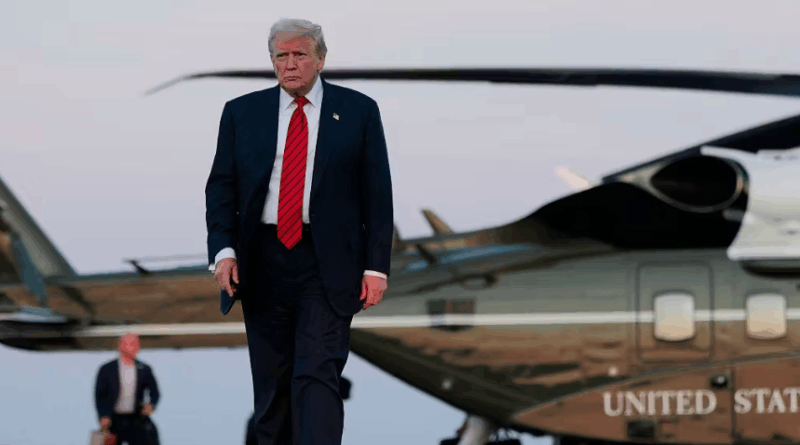Trump Greenlights Military Force To Take Down Latin American Drug Cartels
President Donald Trump has quietly signed a directive empowering the U.S. military to begin offensive operations against designated Latin American drug cartels, marking a major escalation in the administration’s campaign to eradicate foreign criminal networks responsible for flooding America with deadly narcotics.
According to sources cited by The New York Times, the order provides the Pentagon with an explicit legal framework to treat major cartel organizations as foreign terrorist groups — a shift that opens the door to expanded military action in foreign countries. Plans are reportedly already underway for specific operations targeting these groups.
The list of cartels covered under Trump’s terrorist designation includes seven of the most dangerous drug syndicates in Mexico, Venezuela, and Central America: Tren de Aragua (TdA), Mara Salvatrucha (MS-13), Cártel de Sinaloa, Cártel de Jalisco Nueva Generación (CJNG), Cártel del Noreste (CDN), La Nueva Familia Michoacana (LNFM), Cártel de Golfo (CDG), and Cárteles Unidos (CU). Most recently, Trump added the Venezuelan Cartel de los Soles to the list — a criminal network reportedly controlled by Venezuelan dictator Nicolás Maduro and high-ranking officials in Caracas.
Attorney General Pam Bondi, who announced a $50 million bounty on Maduro earlier this week, said the Venezuelan regime was directly responsible for trafficking tons of cocaine and partnering with narco-terrorist groups to destabilize the Western Hemisphere.
“Maduro uses foreign terrorist organizations like TDA, Sinaloa, and the Cartel of the Suns to bring deadly drugs and violence into our country,” Bondi said. “To date, the DEA has seized 30 tons of cocaine linked to Maduro and his associates, with nearly seven tons tied directly to Maduro himself.”
While the military has previously supported interdiction efforts, this new directive goes several steps further — granting the authority to initiate strikes or joint operations in foreign territories where cartels operate. Trump’s move comes as the fentanyl crisis continues to devastate American communities and as lawmakers demand a tougher, war-footing response to transnational crime.
President Trump has long promised to “wage war” on cartels, saying they are responsible for mass murder and the drug-fueled destruction of American cities. In May, he revealed that he had offered Mexican President Claudia Sheinbaum a bilateral security deal that would allow U.S. troops to be deployed to Mexican soil to combat the cartels directly.
“She said no. That’s fine. But these people are killing our kids,” Trump told reporters aboard Air Force One. “If Mexico wanted help with the cartels, we would be honored to go in and do it.”
President Sheinbaum rejected the offer, framing the issue as a matter of national pride. “Sovereignty is not for sale,” she said. “Sovereignty is loved and defended.”
Despite Mexico’s rejection, Trump is forging ahead. His administration views cartels not simply as criminal organizations, but as paramilitary threats that rival some rogue states in their power, reach, and brutality. With the stroke of a pen, Trump has now given the green light for military planners to take the gloves off.
While legacy media and critics are already raising alarms about potential “militarization” or “interventionism,” supporters say Trump is finally doing what past presidents feared to do: treating the cartels like the terrorist entities they are and unleashing the full might of the United States in response. For families devastated by drug overdoses, the move represents long-overdue justice — and a promise that the days of coddling foreign cartels are over.

